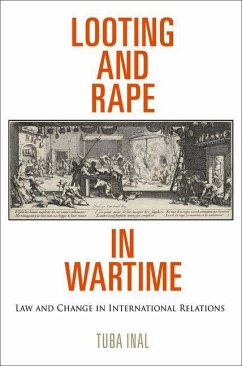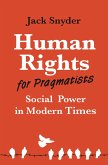Women were historically treated in wartime as property. Yet in the Hague Conventions of 1899 and 1907, prohibitions against pillaging property did not extend to the female body. There is a gap of nearly a hundred years between those early prohibitions of pillage and the prohibition of rape finally enacted in the Rome Statute of 1998. In Looting and Rape in Wartime, Tuba Inal addresses the development of these two separate "prohibition regimes," exploring why states make and agree to laws that determine the way war is conducted, and what role gender plays in this process. Inal argues that three conditions are necessary for the emergence of a global prohibition regime: first, a state must believe that it is necessary to comply with the prohibition and that to do otherwise would be costly; second, the idea that a particular practice is undesirable must become the norm; finally, a prohibition regime emerges with state and nonstate actors supporting it all along the way. These conditions are met by the prohibition against pillage, which developed from a confluence of material circumstances and an ideological context: the nineteenth century fostered ideas about the sanctity of private property, which made the act of looting seem more abhorrent. Meanwhile, the existence of conscripted and regulated armies meant that militaries could take measures to prevent it. In that period, however, rape was still considered a crime of passion or a symptom of behavioral disorder-in other words, a distortion of male sexuality and outside of state control-and it would take many decades to erode the grip of those ideas. Only toward the end of the twentieth century did transformations in gender ideology and the increased participation of women in politics bring about broad cultural shifts in the way we perceive sexual violence, women, and women's roles in policy and lawmaking. In examining the historical and ideological context of how these two regimes evolved, Looting and Rape in Wartime provides vital perspective on the forces that block or bring about change in international relations.
Dieser Download kann aus rechtlichen Gründen nur mit Rechnungsadresse in A, D ausgeliefert werden.









